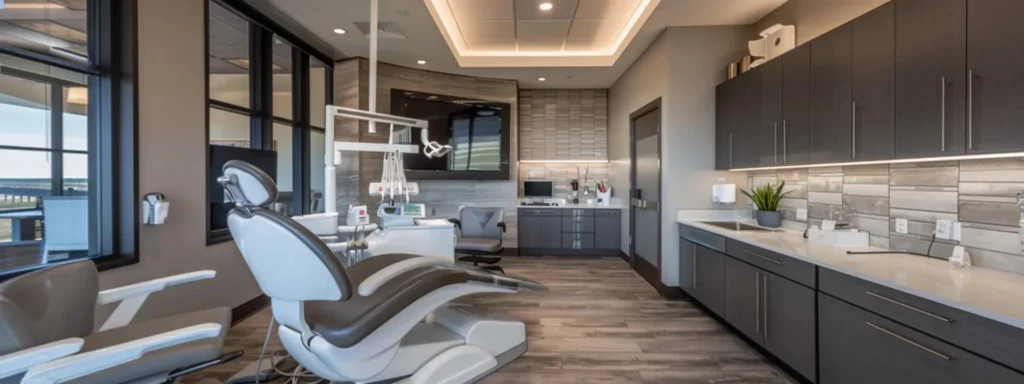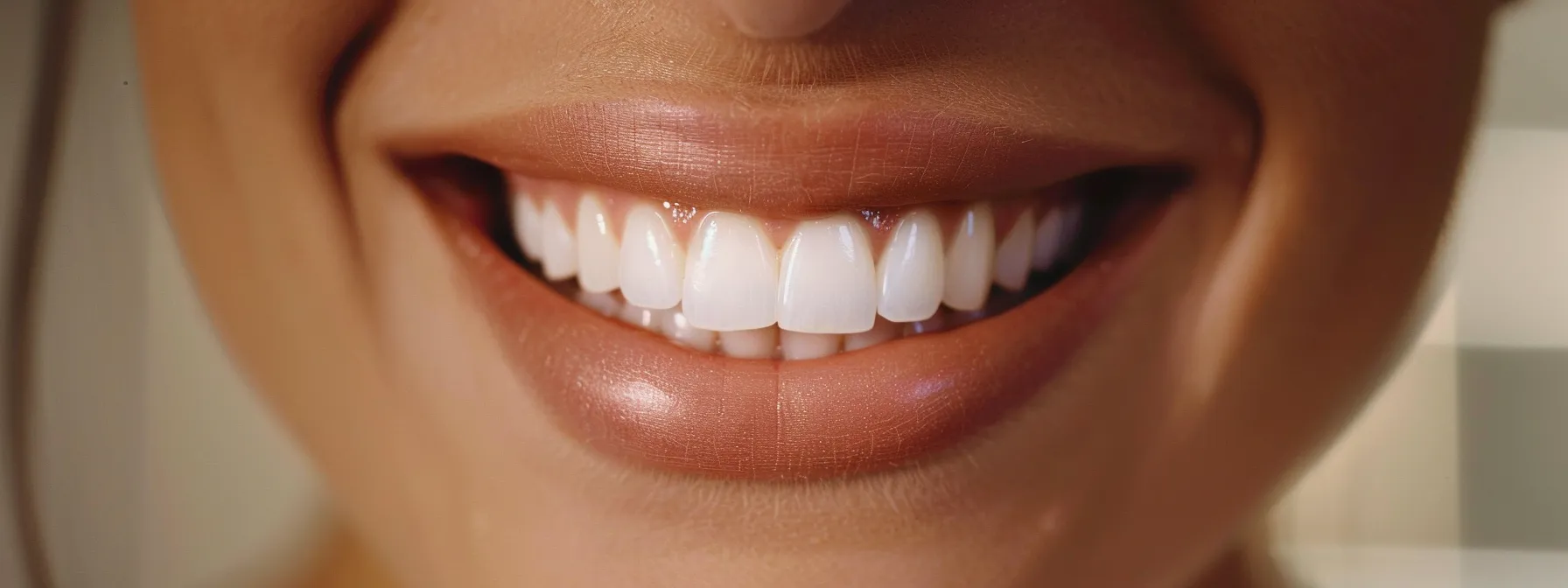Porcelain veneers typically cost between $900 and $2,500 per tooth, with the final price depending on your dentist’s experience, the complexity of your case, and the quality of materials used. Most dental insurance plans don’t cover veneers because they’re considered cosmetic, but many dental offices offer payment plans and financing options to make treatment affordable.
The cost includes your consultation, tooth preparation, custom veneer creation in a dental lab, and final placement. High-quality porcelain veneers can last 15-20 years with proper care, making them a long-term investment in your smile. Modern technology like CAD/CAM systems helps keep costs reasonable while ensuring precise, beautiful results.
Understanding What You’re Really Paying For
When you invest in porcelain veneers, you’re paying for much more than just thin pieces of ceramic. Dr. Scott Kennedy at Dynamic Family Dentistry in Clifton, TX helps families understand that veneer costs reflect years of dental training, advanced technology, premium materials, and skilled craftsmanship. His education from Roseman University and ongoing training through the American Dental Association ensures patients receive expert care that justifies the investment.
The cost of porcelain veneers includes your initial consultation where your dentist evaluates your teeth, discusses your goals, and creates a treatment plan. This planning phase is crucial because it determines exactly what work needs to be done and helps you understand what results you can expect.
Tooth preparation is another component of veneer cost. This involves carefully reshaping your teeth to make room for the veneers, taking precise impressions or digital scans, and placing temporary veneers while your permanent ones are being made. Each step requires skill and attention to detail.
The actual creation of your veneers in a specialized dental laboratory represents a significant portion of the cost. Skilled technicians use your dentist’s specifications to hand-craft veneers that match your natural teeth perfectly in color, shape, and translucency. This custom work takes time and expertise, which is reflected in the price.
Why Porcelain Veneer Prices Vary So Much
Understanding the factors that influence porcelain veneer pricing helps you make informed decisions and know what to expect when you’re planning your treatment. Several key factors determine the final cost of your veneers.
Your dentist’s experience and expertise significantly affect pricing. Cosmetic dentists who specialize in veneers and have extensive training in smile design typically charge more than general dentists, but they also tend to deliver more predictable, beautiful results. The extra investment often pays off in better-looking, longer-lasting veneers.
The complexity of your specific case impacts the total cost. Simple cases where teeth just need color or minor shape changes cost less than complex cases requiring extensive reshaping, bite adjustments, or treatment of multiple dental issues before veneers can be placed.
Here are factors that influence porcelain veneer costs:
- Your dentist’s training and experience in cosmetic dentistry
- Number of veneers needed to achieve your goals
- Complexity of your individual case and oral health
- Quality of materials and dental lab used
Geographic location also affects pricing, with dental costs generally higher in large cities compared to smaller communities. However, this doesn’t mean you have to sacrifice quality to get reasonable prices, especially when you work with experienced dentists in areas like Clifton.
How Modern Technology Affects Veneer Costs
Advanced dental technology has revolutionized how porcelain veneers are designed and created, often making them more affordable and predictable than ever before. Understanding these technological advances helps explain how dental practices can offer high-quality veneers at reasonable prices.
CAD/CAM (Computer-Aided Design/Computer-Aided Manufacturing) technology allows dentists to design veneers with incredible precision using digital impressions and computer modeling. This eliminates the need for messy traditional impressions and often results in better-fitting veneers that require fewer adjustments.
Digital smile design software lets you preview your results before treatment begins, ensuring you and your dentist are on the same page about your goals. This technology reduces the chance of disappointment and the need for costly remakes, ultimately saving money for both patients and dental practices.
Some dental practices have in-house milling machines that can create veneers in a single visit, eliminating laboratory fees and reducing overall costs. While not all cases are suitable for same-day veneers, this technology offers convenience and cost savings for many patients.
These technological advances allow dental practices to provide premium-quality veneers more efficiently, often passing those savings on to patients while maintaining high standards of care and beautiful results.
Material Quality and Lab Partnerships Matter
The quality of materials used in your porcelain veneers and the skill of the dental laboratory creating them significantly impact both the cost and the final results of your treatment. Understanding these factors helps you appreciate the value you receive.
High-quality porcelain materials resist staining, look more natural, and last longer than cheaper alternatives. Premium materials cost more initially but provide better value over time because they maintain their appearance and rarely need replacement.
Dental laboratories that specialize in cosmetic work and employ skilled technicians charge more for their services, but they also deliver veneers that fit better and look more natural. These specialized labs use advanced techniques and quality control measures that justify their higher fees.
The partnership between your dentist and the dental lab affects your results significantly. Experienced cosmetic dentists work with labs they trust and communicate detailed specifications to ensure your veneers meet exact requirements for fit, function, and appearance.
Transparent pricing from your dental practice should include all laboratory fees so you know exactly what you’re paying for. Practices that partner with reputable labs and use quality materials should be able to explain these costs clearly and justify their pricing structure.
Insurance Coverage and Payment Options
Most dental insurance plans classify porcelain veneers as cosmetic procedures and don’t provide coverage, but understanding your options and exploring alternative financing makes treatment more accessible than you might think.
Even though insurance rarely covers veneers, some plans might provide partial coverage if veneers are deemed medically necessary to repair damaged teeth or restore proper function. Your dentist can help determine if your situation might qualify for any insurance benefits.
Many dental practices offer in-house payment plans that allow you to spread the cost over several months or years with low or no interest. These plans often have more flexible approval requirements than traditional financing and can make expensive treatments much more manageable.
Here are common payment options for porcelain veneers:
- In-house payment plans with flexible terms
- Third-party financing through companies like CareCredit
- Health Savings Account (HSA) or Flexible Spending Account (FSA) funds
- Personal loans or credit cards with promotional financing
Some practices offer package deals when you’re getting multiple veneers, which can reduce the per-tooth cost significantly. Others provide discounts for paying the full amount upfront, which can also result in substantial savings.

The True Value of Quality Porcelain Veneers
When evaluating porcelain veneer costs, it’s important to consider the long-term value rather than just the upfront expense. Quality veneers provide benefits that extend far beyond their initial cost.
Porcelain veneers typically last 15-20 years with proper care, making them a long-term investment rather than a short-term expense. When you calculate the cost per year over their lifespan, veneers often provide excellent value compared to other cosmetic treatments that need frequent touch-ups or replacements.
The confidence boost from having a beautiful smile can positively impact many areas of your life, from personal relationships to professional opportunities. While it’s difficult to put a price on increased self-esteem and confidence, many patients consider this the most valuable benefit of their veneer investment.
High-quality veneers require minimal maintenance beyond good oral hygiene and regular dental checkups. Unlike some cosmetic treatments that need frequent maintenance appointments, veneers continue looking beautiful with basic care, providing ongoing value without additional costs.
Making Smart Financial Decisions About Veneers
Planning for porcelain veneer treatment involves more than just understanding the costs. Smart financial planning ensures you get the best value while staying within your budget.
Getting detailed treatment estimates from multiple qualified dentists helps you understand fair market pricing and find the best value for your investment. However, be cautious of prices that seem too good to be true, as they often indicate compromises in materials or technique.
Consider the total cost of treatment, including any preparatory work like cleanings, fillings, or gum treatment that might be needed before veneers can be placed. A comprehensive treatment plan prevents surprise expenses and helps you budget accurately.
Timing your treatment strategically can sometimes save money. Some practices offer seasonal promotions, and using FSA or HSA funds before they expire can provide additional savings on your veneer investment.
Expert Consultation and Treatment Planning
Working with an experienced cosmetic dentist ensures you get honest guidance about veneer costs and realistic expectations about results. Dr. Kennedy’s experience treating families throughout Texas, combined with his ongoing education through organizations like the Academy of General Dentistry, provides valuable insights for patients considering veneer treatment.
Comprehensive consultation should include examination of your oral health, discussion of your aesthetic goals, and detailed explanation of treatment costs with no hidden fees. This transparency allows you to make informed decisions about your dental investment.
Quality dental practices provide detailed treatment plans that break down all costs involved, from consultation through final placement. Understanding these itemized costs helps you appreciate the value you’re receiving and plan your budget accordingly.
Your Investment in Confidence and Quality
Porcelain veneers represent a significant but worthwhile investment in your smile, confidence, and overall quality of life. Dynamic Family Dentistry in Clifton, TX combines expertise, advanced technology, and transparent pricing to ensure patients receive exceptional value from their veneer treatment.
Understanding that veneer costs reflect the quality of materials, expertise, and technology involved helps you appreciate the true value of your investment. While the upfront cost may seem substantial, the long-term benefits of beautiful, durable veneers make them an excellent value for many patients.
Working with experienced dental professionals who prioritize patient education, transparent pricing, and quality results ensures your veneer investment delivers the beautiful, confident smile you deserve while providing excellent long-term value.
Dr. Scott Kennedy and the team at Dynamic Family Dentistry are here to help you achieve the bright, confident smile you’ve always wanted. Book a consultation today to learn more about dental veneers in Clifton, TX, and take the first step toward a radiant smile!
Dynamic Family Dentistry
302 S. Avenue Q, Clifton, Texas Phone: (254) 675-3518
Frequently Asked Questions
What does a porcelain veneer typically cost per tooth?
Porcelain veneers typically cost between $900 and $2,500 per tooth, with the final price depending on factors like your dentist’s expertise, the complexity of your case, and the quality of materials used. More experienced cosmetic dentists may charge toward the higher end of this range, but they often deliver more predictable and beautiful results.
Are there any hidden costs to porcelain veneers?
Reputable dental practices like Dynamic Family Dentistry believe in complete pricing transparency. You should receive a detailed breakdown of all costs involved, including consultation, preparation, laboratory fees, and placement, with no surprise charges. Always ask for itemized estimates and clarification of what’s included in your quoted price.
Will my insurance cover the cost of porcelain veneers?
Most dental insurance plans classify porcelain veneers as cosmetic procedures and don’t provide coverage. However, many dental offices offer financing options, payment plans, and the ability to use HSA or FSA funds to make treatment more affordable. Some cases involving damaged teeth might qualify for partial coverage if deemed medically necessary.


